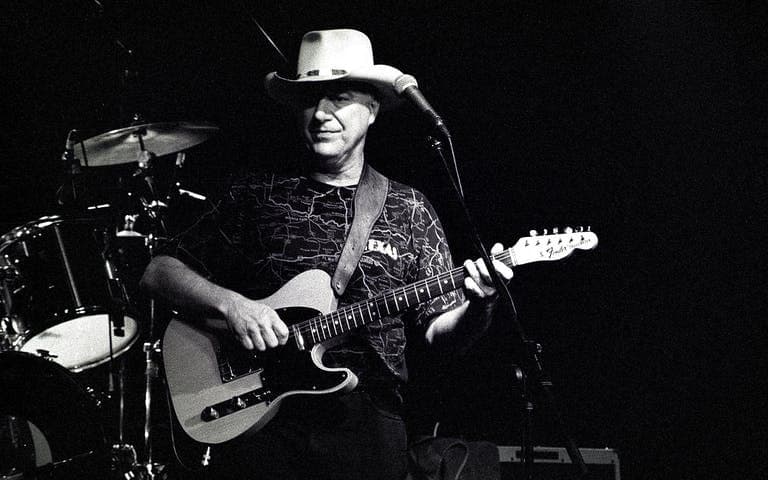
An Ode to Mutual Flaws: The Rambler’s Acceptance of Shared Human Frailty
Jerry Jeff Walker’s rollicking 1975 track, “Pot Can’t Call The Kettle Black,” is a grinning, unapologetic anthem of mutual vice and acceptance, a centerpiece on his classic album, Ridin’ High. Penned by songwriter Bill Callery, this spirited tune didn’t burn up the mainstream charts in the way that some of Walker’s other work might have, but its inclusion on a celebrated album from a pillar of the Progressive Country and Outlaw Country movements cemented its place in the hearts of his devoted audience. The song’s significance lies less in commercial rank—which is difficult to pinpoint for this specific track’s release, generally not being issued as a primary single—and more in its encapsulation of the freewheeling, self-aware spirit of the Austin music scene in the mid-70s. It was a time when the boundaries between folk, rock, and country were deliciously blurred, and Jerry Jeff, the “Gypsy Songman,” was at the very epicenter.
The title itself, of course, draws on the centuries-old idiom, a potent shorthand for hypocrisy: one shouldn’t criticize others for a fault they possess themselves. In Callery’s masterful hands, and through Walker’s delightfully gravelly delivery, the meaning blossoms into a broader philosophy of life. The lyrics don’t just point out a single hypocritical moment; they paint a panoramic picture of a relationship—or perhaps a whole community—where everyone’s got their own “ramblin’ roll” and no one has the moral high ground to complain.
Think back to those days, when the needle dropped on Ridin’ High. That Irish reel-like piano intro, the easy, rolling rhythm—it was the sound of a good time and a knowing wink. When Walker sings lines like, “Come on home drunk at day break / You got no room to complain,” or admits, “Grandpa had him a wanderin’ eye / He must a passed it on down to me,” he’s not making excuses; he’s laying bare the messy truth of human nature with a shrug. It’s an embrace of imperfection, a recognition that “the train’s all runnin’ on the same ole track.” We’re all flawed; we’re all looking for something at the bottom of a bottle or down that “dusty ole road.” It’s an invitation to let go of judgment and enjoy the ride, because “Can’t feel nothing but your life flyin’ by.”
For those of us who came of age during that era, the song resonates with a profound sense of shared experience. It’s the sound of old friends on a porch at dawn, trading stories of misadventures, all forgiven because everyone’s been there. It’s a testament to the fact that in the most genuine relationships, you accept the blemishes, the wanderings, and the occasional—or frequent—stumbles. Jerry Jeff Walker wasn’t just a singer; he was the bard of the beautiful losers, the eloquent poet for the rowdy friends we’ve all made and kept over the years. This song, with its lively pace and its deeply resonant message, serves as a nostalgic reminder that sometimes, the only way forward is to look in the mirror, smile at our own black kettle, and simply pour another drink.